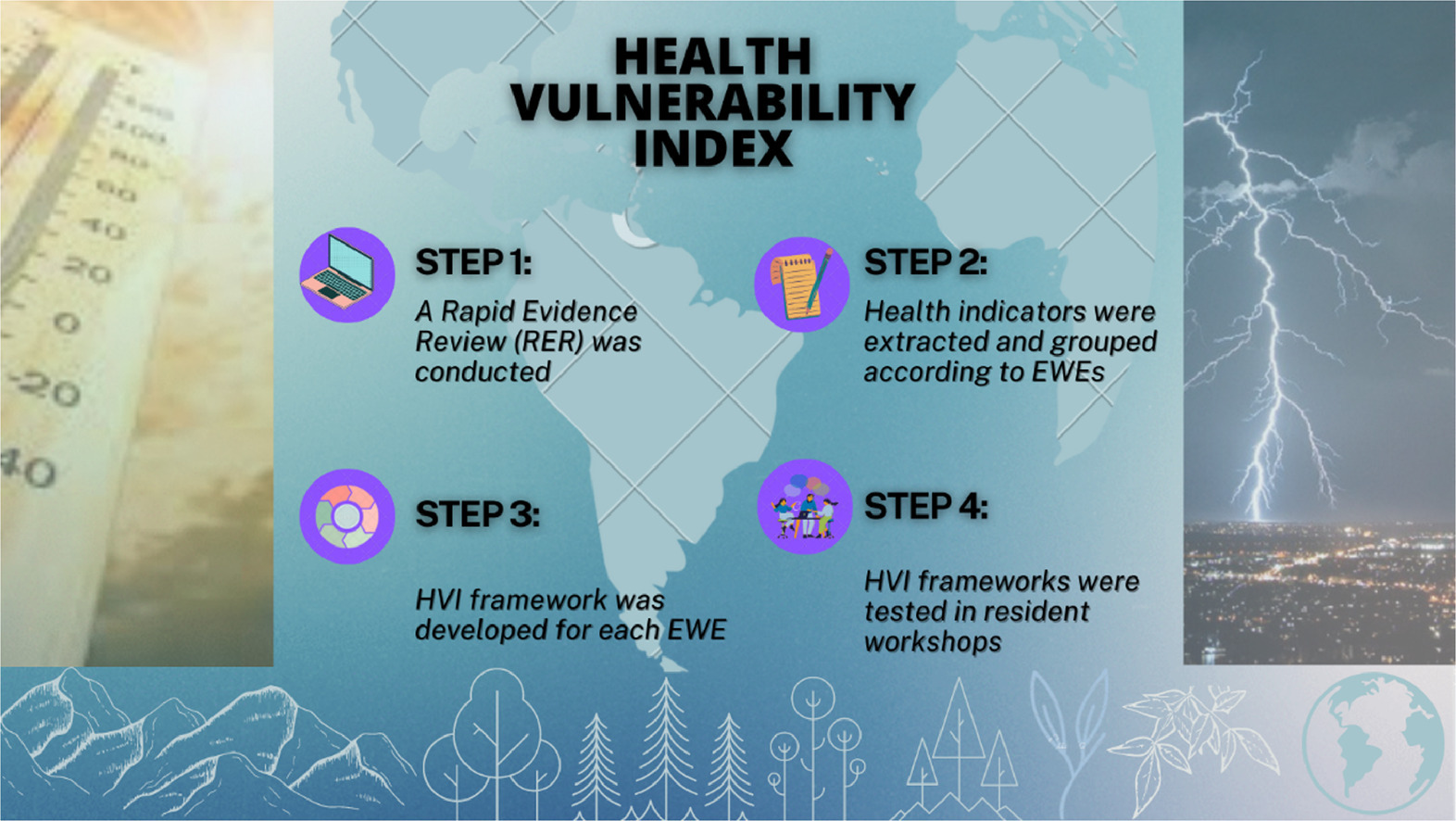Method and process towards developing a Health Vulnerability Index (HVI) for Extreme Weather Events (EWEs) for local residents in South Africa
Year: 2024
Published in: MethodsX

An increase in incidence and amplitude of extreme weather events (EWEs) linked to climate change, has resulted in greater human exposure and vulnerability to weather-related health effects. Increases in the occurrence of EWEs, including storms, flooding, extreme heat and wildfires, will impact health globally, with poor and vulnerable populations disproportionately affected. Vulnerability to EWEs, and the ability to adapt to these weather shocks, are influenced by existing physical, social and political limitations of a given region. As such, developing context-specific health vulnerability indices to inform planning and decision-making for policy makers and citizens alike, should be prioritized. The existence and development of health vulnerability indices in South Africa are limited, therefore, this study provides a foundation from which future indices can build. Mixed methods approaches including evidence and data analysis/synthesis and focus groups are used to understand the interconnections between extreme weather events and human health, including citizens’ understanding of emergent vulnerabilities linked to these events.